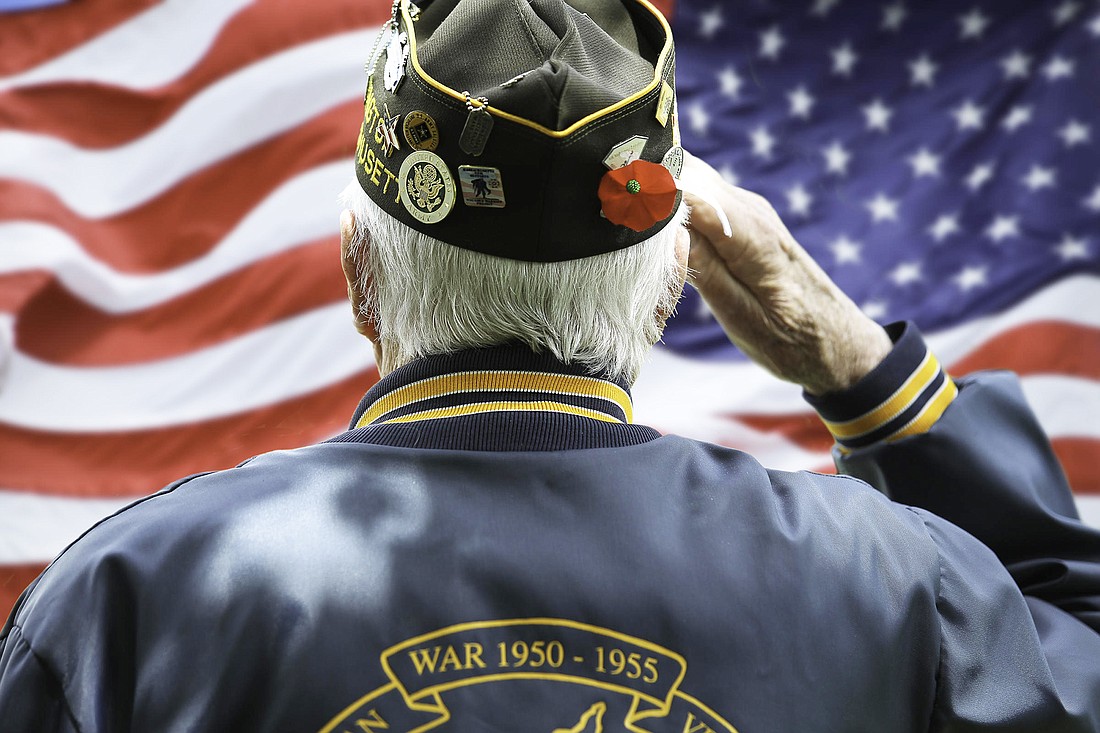
By Joseph Scone, Co-chair of the JBA Veterans and Military Affairs Committee
Duval County has more than 83,000 military veterans among its population. Many are low income, homeless, disabled or otherwise unable to find the legal services they need.
Veterans frequently have problems that require an understanding of Veterans Administration procedures or other programs specific to veterans and military service members.
The questions to consider are whether the veterans of Duval County need a legal aid society and whether Duval County has the will to support a veteran-specific legal aid society.
In looking at the needs of veterans over the past five years to identify where efforts should be placed, I noticed significant changes.
Five years ago, much of the focus of veterans’ advocacy was on young veterans becoming homeless because they had difficulty returning to civilian society after their military service.
Homelessness, PTSD, substance abuse and a high suicide rate brought those veterans in contact with law enforcement officers on a frequent basis. The 4th Judicial Circuit Veterans Treatment Court grew to address that problem.
While the above are serious problems, our police and courts are better than ever at recognizing and addressing problems.
Presently there are substantially fewer veterans returning directly from war. Those who are longer out of service have different needs. I believe it is the problems beyond the immediate that need a concerted effort.
For 88 years, the Veterans Administration has been providing an array of benefits for veterans who can successfully navigate its ever-changing regulations. Veterans with access and benefits can escape acute problems, but they first need access.
Duval County has a substantial veteran population and several military installations. With an abundance of customers, and lack of competition in the area, a veterans’ rights practice should look attractive.
Why aren’t attorneys flocking to represent veterans against the VA? The answer is that usual suspect: money.
In order to keep greedy lawyers away from veterans’ money, the VA created a fee structure that severely limits when an attorney can charge for services and how much can be charged.
Attorneys who are successful at their claim can be paid 20 percent of the back-due benefit. There can be no claim on future benefits. Attorneys who contract outside the VA fee structure have practically no enforcement mechanism should the client later decide to not pay.
For a client with a 5-year-old claim, changing a disability rating from 0 percent to 100 percent can generate a fee nearing $35,000.
However, the typical case only increases a veteran’s benefits by 10 to 20 percent. Increasing a veteran’s disability rating from 20 percent to 30 percent takes the same amount of attorney effort as the aforementioned “golden unicorn” case, yet it generates a fee of less than $1,500. If personal injury attorneys were so limited, we would have no legal advertising on television.
But these unprofitable cases can dramatically change a veteran’s life. The extra $148 a month may not be the pot of gold at the end of a veteran’s rainbow, but 30 percent disability or greater provides access to a host of benefits and programs.
At 30 percent, there are programs available from housing assistance to education and vocational training. Other programs offer modifications of living space, protections in the workplace and access to the health care the veteran was promised years ago.
Our current legal aid societies do an admirable job, but too often lack the veterans law focus or resources that this segment of our population needs.
I spoke to legal aid society attorneys in Jacksonville, Atlanta, Detroit and Washington, D.C. Not a single attorney surveyed had brought a case before the Board of Veterans Affairs or even briefed the Court of Appeals for Veterans Claims. Few attorneys had conducted a hearing at their local Veterans Affairs Regional Office.
Those three reviewing bodies constitute the lion’s share of the infamous VA case backlog, yet very few attorneys have practiced there.
I feel the time has come to create a legal aid society specific to veterans. We need a group that has the focus to serve veterans and the flexibility to work with the existing legal aid societies. To create that society takes more than flag waving and political promises. It takes hard work and money.
You can help build the Veterans Legal Center of Duval County. Your knowledge, expertise and assets can create a lasting solution that will help generations of veterans.
Now is the time to help those who served.
Joseph Scone is a personal injury attorney focusing on veterans’ rights.